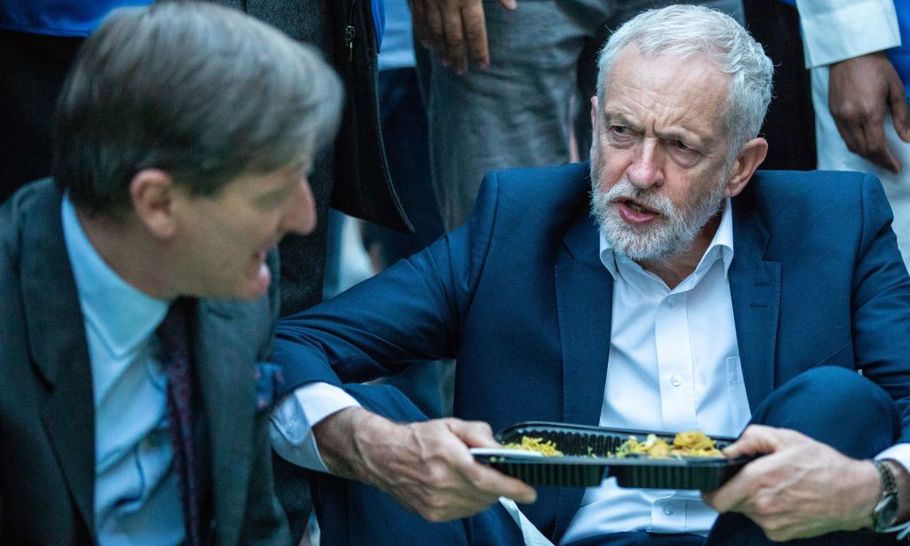Five reasons why a Government of National Unity could never work

Luke Dray/Getty Images
You have to hand it to them: die-hard Remainers are nothing if not tenacious. As the situation stands, Britain’s exit from the European Union is enshrined in UK law; a Tory Brexiteer – who has sworn to leave the EU “do or die” on Halloween – is sitting in Downing Street, and a “war cabinet” stuffed full of his Brexiteer allies are conducting daily meetings to prepare for No Deal. And yet still Dominic Grieve et al. battle on.
The latest plan involves the creation of a “Government of National Unity”: a group of politicians from various parties and parliamentary factions taking office with a single task – to seek an extension to the Article 50 process and to trigger a general election. To those with a saviour complex who believe that Brexit is a crisis, the idea – borrowed from Churchill – has understandable appeal. But it could never work. Here’s why:
- Not enough Conservatives would back it. To take office, this government would need the support of at least three Conservative MPs – assuming for a moment that all of the opposition parties and groupings were able to remain united. There is, of course, a sizeable band of Remainers in the Conservative Party, but the idea that many of them would actually vote to bring their own government down is fanciful. Yes, they don’t like Brexit, but they do like the jobs they jumped through endless hoops to secure, and voting to oust the Prime Minister would result in automatic deselection. Scraping together three might be just about possible: Dominic Grieve and Antoinette Sandbach seem more than ready to shake off the shackles of the Conservative Party, and Ken Clarke (who is 79) has very little to lose. But, considering that a handful of arch-Brexiteers on the opposition benches would vote to keep Boris in power, a “Government of National Unity” would actually need to find five. And working out where the other two would come from is a head-scratcher.
- The Labour front bench wouldn’t support it. Speaking to Iain Dale at the Edinburgh Fringe Festival this week, the Shadow Chancellor explained that should the Government be brought down by a vote of no confidence when Parliament returns in September, Labour “wouldn’t enter into coalitions or pacts”. In that situation, his Party’s priority would be to establish a Labour government led by Jeremy Corbyn. And if that proves impossible – as it would – the only alternative would be a general election. Of course, there are a few Labour MPs who don’t trust Jeremy Corbyn’s Remain credentials and would defy the whip – if it came to it – in order to elevate committed Remainers to high office. But again, it comes down to the numbers. A Government of National Unity would need the support of every single Labour MP to stand a chance, and the vast majority of them know which side their bread is buttered: Jeremy Corbyn and his band of loyal Labour members show little mercy to rebels, and risking a good career for the sake of (maybe) making Dominic Grieve Prime Minister (for a bit) would hardly be sensible.
- Boris Johnson would dispute the legitimacy of it. In a piece for the Times yesterday, constitutional expert Vernon Bogdanor wrote that the Queen should only agree to give such a government a chance to hold office if she has written evidence that it would command a majority. But who would give her such evidence? And how could it be tested except by a vote of confidence? Surely Boris could dispute it and argue that he, as leader of by far the largest party, has the right to remain in office until the election.
- No politician could unite the warring Remain factions. In order to stand a chance, a “Government of National Unity” would need to be led by a true leader with Churchill-esque charisma, vision and an ability to drum up respect and admiration. Arch-Remainers simply couldn’t produce such a person. The names which have been touted so far are Chuka Umunna (a man who has become a laughing stock for defecting twice in the space of six months), Ken Clarke (who, to put it mildly, is well past his peak), Dominic Grieve (a lawyer famed for dryness) and Heidi Allen (the leader of a Party which performed so abysmally in this year’s election, it fell apart 12 weeks after its launch). The idea that any of these people could command the House of Commons, at one of the most trying times in its history, is frankly nothing short of laughable.
- It wouldn’t be a Government of National Unity at all. As everyone in Britain knows all too well, the political axes have shifted in the last three years. Politicians (and citizens) no longer define themselves as left-wing Labour supporters or right-wing Conservatives: they are now, first and foremost, Leavers or Remainers. A Government of National Unity packed full of Remainers (even if they hailed from both sides of the House) wouldn’t, therefore, be a Government of National Unity at all. And, given its sole purpose would be to extend our membership of the EU, it would probably be one of the most divisive governments in living memory. Quite some misnomer.





